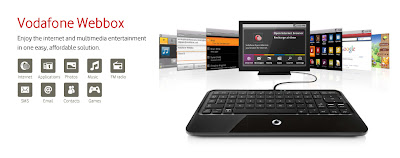NGB COLLABORATES WITH LOCAL CHANNELS ON DIGITAL TERRESTRIAL TELEVISION PLATFORM
Digital Terrestrial Television is the future of television broadcasting. Ghana signed to the International Telecommunication Union (ITU) Geneva 2006
(GE06) agreement to migrate from analogue to digital broadcasting by June 2015, alongside other countries in Europe, Africa and Iran.
The Digital Terrestrial Television (DTT) is the technological evolution and advance from analogue terrestrial television. It is the transmission of a
television signal with land-based antennas. A terrestrial implementation of digital television technology uses aerial broadcasts to a conventional antenna
instead of satellite dish or cable connection. To receive the digital signals on current analogue TV sets, a Set-Top-Box (Decoder) will be required to
convert the digital signal from analogue signal. This has a number of advantages for viewers; these include clearer picture quality, better sound quality,
more channels and an on-screen electronic program guide, which will enable viewers plan their viewing.
In line with this Agreement, the Ministry of Communications and National Communications Authority (NCA) has inaugurated a 26 member committee on
13th January 2010 to come up with a policy driven transition that focuses on Free-to-Air terrestrial broadcasting and set the date for an analogue switch
off to be approved by the Cabinet. The Minister for Communication, Mr. Iddrisu indicated that the ministry’s approach to the subject of digital migration
was to pursue the analogue switch-off process in phases; starting from all regional capitals and the establishment of the national coordinating committee
for digital broadcasting and aligning the whole engagement with the government’s e-government agenda.
The Minister of Communications expressed the hope that the technical committee will consult widely with all stakeholders and also benchmark with work
done by other countries within the African region to be able to present a credible and practical policy recommendation for the realization of the
objective of digital broadcasting migration in Ghana.
Ghana Broadcasting Corporation (GBC) launched a pilot DTT in Accra in November 2008 with transmission covering a 15km radius around GBC’s Kanda
Premise, which covers Accra and Tema. The Pilot is a collaboration of Next Generation Broadcasting (NGB), TV Africa, Net 2, and TV 3. The channels that
are being carried are GTV, TV3, TV Africa, Net 2, Viasat 1, KidsCo and CNBC Africa. About 300 Set-Top-Boxes were installed in some Government and
private institutions, including pubs, hospitals, salons, private homes and advertising agencies in both Accra and Tema to receive the digital signal.
In a press briefing at GBC in September 2009, the Director General of GBC hinted, Greater Accra, Kumasi and some parts of the Eastern Region will have
access to the Digital terrestrial broadcasting in 2010. He mentioned digital broadcasting will be extended to other regions in Ghana later. During this
period, viewers in Accra and the above mentioned areas will have a simulcast transmission where viewers/households will be able to receive both digital
terrestrial television transmission and analogue television transmission. However, to receive this DTT transmission on current television sets, households
will need Set-Top-Boxes (Decoders) to convert the digital signal from analogue signal.
Also in the same press briefing in September at GBC, Mrs. Yvonne Osei-Tutu, the Country Manager of NGB Ghana said, the DTT service will expand the
reach of the Free-to-air stations since their channels would be viewed by a larger audience due to better signal reception. Additionally, it will be an
opportunity for local producers to increase and improve their content as DTT will create the demand for more and quality content. She also stressed the
need for an entity recognized as a Service Operator. This entity will ensure that the TV channels reach the consumer and take care of customer service.
The DTT platform will bring numerous opportunities to viewers, broadcasters, production houses or content providers. In addition, the emergence of DTT
has potential to provide interactive applications, such as, games, internet, teletext, high-definition TV (HDTV) and data casting services. Compared to
satellite services, the DTT offers easy installation with a required TV antenna. It is also convenient to move from one location to the other.
About NGB
Next Generation Broadcasting (NGB) Ghana Ltd is a Ghanaian-Swedish (Next Generation Broadcasting AB based in Stockholm, Sweden) joint venture.
Established in 2006, Next Generation Broadcasting (NGB) has been in the forefront of providing affordable, widely accessible and readily available digital
terrestrial TV services to emerging markets in Africa, Asia and Latin America. NGB is funded by the Swedish Pension Fund.
NGB Ghana Limited as a Service Operator will launch a Digital Terrestrial Pay TV service in Ghana branded SMART TV. SMART TV will provide customer
with both free to air and pay channels. The service will provide every Ghanaian home their FTA and additional quality entertainment (local and
international channels) at an affordable price that will satisfy each member of the household.
SMART TV will initially be available in Greater Accra and Kumasi and later extended to other regions. The consumers will enjoy clearer picture and sound
quality and an on-screen TV programming guide. SMART TV will also create an attractive and competitive content package and interactivity to be
marketed, sold and distributed to the consumers on the DTT platform in Ghana.
Is this what we all want, the most affordable entertainment for all of without much of a hustle.



Comments
Post a Comment
Be sure to check back again because I do make every effort to reply to your comments here. Karibu :)